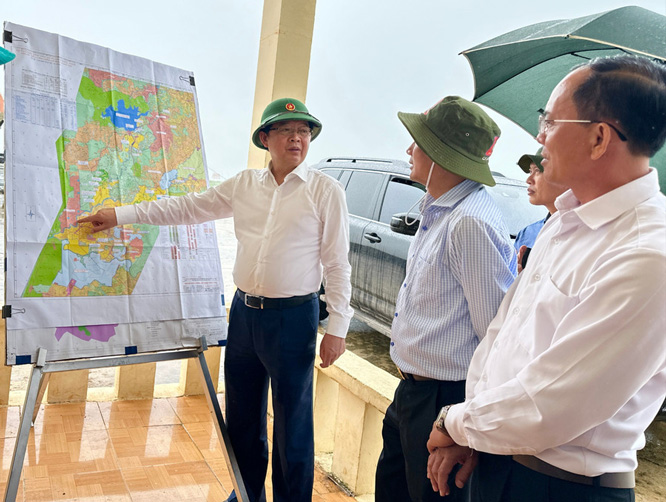On August 19, the Department of Agriculture and Environment of Gia Lai province said that the unit is researching and considering developing a plan to provide production land to people in the border commune of Ia Mo.
For many years, the lives of people in border areas have been difficult, agricultural production is mainly small-scale and fragile. Many households lack land for cultivation, some have to take on forest protection contracts to earn income, while encroachment and deforestation of forests to grow rice and crops still occur, causing complications for security and order.
According to statistics, Ia Mo commune has more than 9,100 hectares of poor forests assigned to rubber growing enterprises. However, on top forest land, thousands of hectares of rubber are deposited, underdeveloped, and have low economic efficiency.
Enterprises have repeatedly proposed converting crops, but according to the Forestry Law, this requires replacement forest planting with corresponding areas, causing high costs and making implementation difficult. The authority to decide on crop conversion belongs to the Government.

During a recent visit to Ia Mo commune, Gia Lai Provincial Party Secretary Ho Quoc Dung proposed studying a plan for businesses to hand over a part of the land to the locality to provide for people to produce. The State will have a mechanism to support businesses to avoid wasting land resources.
Previously, in 2024, the Provincial People's Committee directed sectors to coordinate with businesses and scientists to comprehensively assess the program to convert more than 50,000 hectares of poor forests to rubber planting, to report to the Central Ministries and the Prime Minister.
From 2008 to present, Gia Lai has implemented 44 rubber planting projects for 16 enterprises, with a total area of over 25,500 hectares. Of which, the area of rubber with normal development is 9,008 hectares, underdeveloped 14,084 hectares, dead 2,448 hectares.
This reality shows that crop conversion needs to be carefully studied to avoid wasting social resources.











